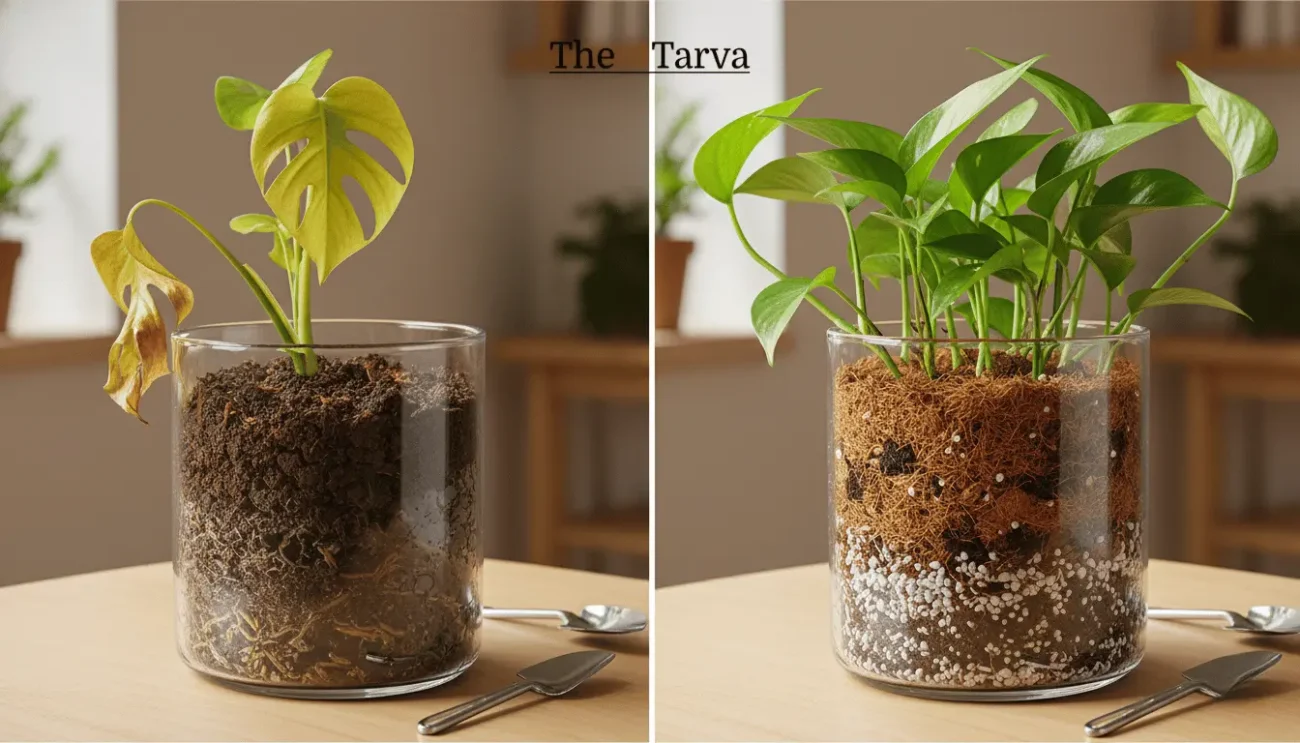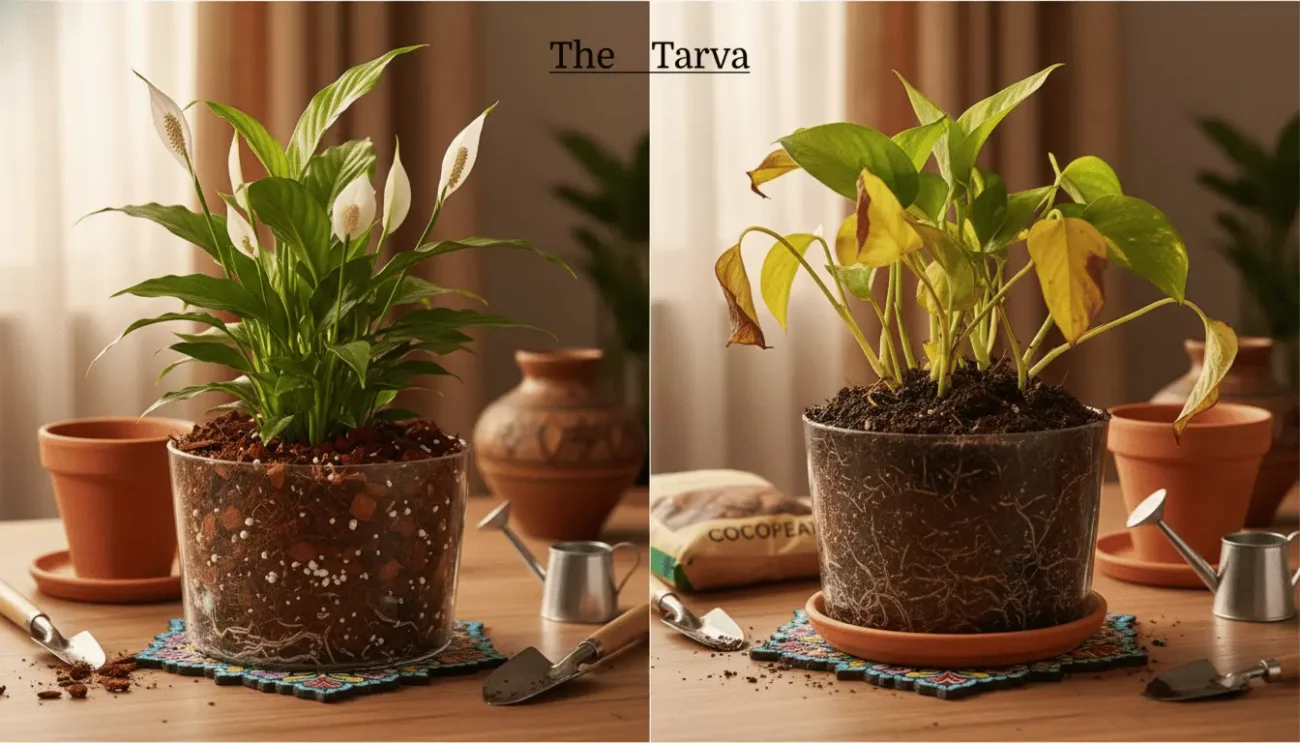The Snake Plant (Sansevieria, also known as Mother-in-Law’s Tongue) is one of the most resilient and stylish indoor plants. Known for its upright sword-shaped leaves, air-purifying qualities, and extremely low-maintenance nature, it has become a must-have plant for modern Indian homes.
One of the best things about snake plants is that they are easy to propagate. With just one healthy mother plant, you can multiply your collection and even gift new plants to family and friends. In this detailed guide, we’ll cover everything about snake plant propagation at home—methods, step-by-step instructions, care tips, and common mistakes to avoid.
Why Propagate Snake Plants?
- Cost-Effective – Instead of buying new plants, you can grow several from one parent plant.
- Perfect for Gifting – Propagated snake plants make thoughtful, green gifts.
- Indoor Décor – More plants mean more opportunities to decorate your home naturally.
- Plant Longevity – Propagation helps rejuvenate older snake plants and encourages fresh growth.
Best Time to Propagate Snake Plants
The ideal time is during spring and summer, when the plant is in active growth. During these seasons, new cuttings root faster and establish themselves more easily.
Methods of Snake Plant Propagation
There are three main ways to propagate a snake plant:
1. Propagation in Soil (Leaf Cuttings)
The most common method for beginners.
Steps:
- Select a healthy leaf from your snake plant.
- Cut the leaf near its base using sterilized scissors.
- Let the cuttings dry for 1–2 days to prevent rotting.
- Plant the cuttings upright in a pot filled with well-draining soil.
- Water lightly and keep in bright, indirect light.
Timeframe: Roots develop within 3–6 weeks.
2. Propagation in Water
A visually appealing method where you see roots growing.
Steps:
- Cut a healthy leaf into sections (4–5 inches long).
- Place the sections in a jar of clean water, ensuring the cut end is submerged.
- Keep the jar in a bright spot with indirect sunlight.
- Change the water every 5–7 days.
- Once roots are about 2 inches long, transfer to soil.
Timeframe: Rooting takes 4–8 weeks.
3. Propagation by Division
Best for larger, mature snake plants with multiple growths.
Steps:
- Remove the entire plant from its pot.
- Gently separate clumps with roots attached.
- Replant each clump in its own pot with fresh soil.
- Water lightly and allow roots to settle.
Timeframe: Growth resumes in 2–3 weeks.
Ideal Soil Mix for Snake Plant Propagation
Snake plants need well-draining soil to prevent root rot. A good mix is:
- 50% garden soil
- 30% sand or perlite
- 20% compost or cocopeat
This ensures aeration, moisture balance, and essential nutrients.
Aftercare Tips for Snake Plant Propagation
- Light: Place in bright, indirect sunlight. Avoid harsh afternoon sun.
- Water: Only water when the soil is dry. Overwatering is the main reason cuttings fail.
- Humidity: Snake plants adapt well to normal Indian indoor humidity.
- Fertilizer: Once roots are established (after 2–3 months), feed with a mild liquid fertilizer every 6–8 weeks.
Common Mistakes to Avoid
- Overwatering – Causes root rot quickly.
- Skipping drying period – Fresh cuttings should dry before planting to avoid fungus.
- Too much direct sunlight – Leaves may scorch.
- Using heavy garden soil alone – It retains water, suffocating roots.
Table: Comparison of Propagation Methods
| Method | Difficulty | Timeframe | Success Rate | Best For |
|---|---|---|---|---|
| Soil (Leaf Cuttings) | Easy | 3–6 weeks | High | Beginners, quick growth |
| Water Propagation | Medium | 4–8 weeks | Moderate | Decorative rooting, gifting |
| Division | Very Easy | 2–3 weeks | Very High | Large, mature plants |
Benefits of Snake Plants Indoors
- Air Purification: NASA-approved for removing toxins like formaldehyde and benzene.
- Low Maintenance: Survives with little light and infrequent watering.
- Aesthetic Appeal: Complements modern, minimalist, and traditional Indian décor.
- Good Luck Plant: Considered auspicious in Feng Shui and Vastu Shastra.
Where to Buy Healthy Snake Plants Online
If you want to start your propagation journey, begin with a healthy mother plant. At The Tarva, we offer a curated collection of premium-quality snake plants delivered across India.
Explore our collection here: thetarva.com
Conclusion
Snake plant propagation is simple, rewarding, and a sustainable way to grow your indoor jungle. Whether you choose soil, water, or division, the process requires minimal effort and ensures long-lasting greenery. With the right care, your propagated snake plants will not only beautify your home but also purify the air and bring positivity.





